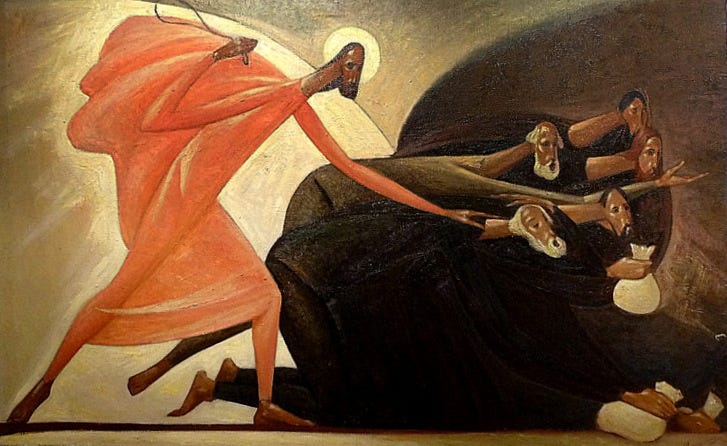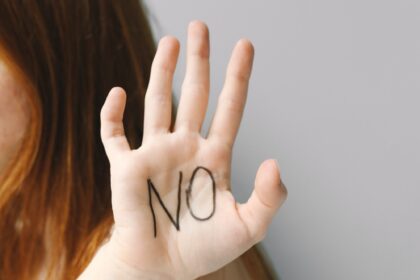Aporophobia. It’s the bias that cannot say its name, in part because few have ever heard of it. This ponderous little word, coined by the Spanish philosopher Adela Cortina, points to something monstrous: the systematic fear, contempt, and dehumanisation of the economically fragile. The “lazy” and “unmotivated” do not fall into this event horizon. Period.
It’s not just an attitude. It’s a system, a social, judicial, and economic system that treats poverty as a pathology and punishes those who suffer from it.
So for the record, let’s call this what it is. This is not a moral failure on the part of the individual but rather a deliberate act of engineering against society, woven into policies, crafted by platforms, and subtly enforced by those who cling to the comfort zone.
So let’s begin with a headline that didn’t break the internet: “Research team creates model to detect anti-poor sentiment in online interactions.” The study was conducted on the arXiv, an open-access repository established in 1991 at Los Alamos National Laboratory in Los Alamos, New Mexico, and currently maintained by Cornell University in Ithaca, New York. The study employed natural language processing to monitor aporophobia across forums and platforms, including Twitter and Reddit.
What did they find?
The patterns are chillingly familiar to how racism or misogyny plays out online, but this time they are targeting low-income communities. “Poor people shouldn’t have smartphones.” “Why do they even have kids?” “They’re just lazy.” Familiar? You’ve likely swiped past a dozen comments just like these today. Or maybe, if you’re truthful, you mentally echoed one yourself.
But here’s the rub: poverty is not a legally protected category, unlike race or gender, in most democracies. This means that you can be denied housing, education, or opportunities simply because you are poor, and you will have no legal recourse.
Now comes the judicial process, where the presumption of innocence is not free. In this country, 80% of defendants in criminal cases are indigent. Translation? They count on overworked public defenders or, worse, plead guilty to crimes they didn’t commit simply to wake from the nightmare of pretrial detention.
Consider Kalief Browder, a 16-year-old from the Bronx, NY, was charged with stealing a backpack in 2010. For three years, he was held on Rikers Island Jail, two of them in solitary confinement, without trial, because his family didn’t have $3,000 for bail. He was eventually released. But two years later, he died by suicide. Tell me, who are the real guilty criminals in the case of the record here?
In “poverty profiling”, he explained, it’s not the crime that someone has committed that is going to determine how long they do, but where they come from. Can’t afford a bribe? You will spend weeks in remand for petty offences like loitering or public micturition. The wealthy bail out the corrupt and turn them into Members of Parliament.
Are we at ease with this situation?
If poverty and the poor are rendered criminal and the dismissed are systematically silenced through judicial barriers, what pretence can we have to fairness, much less justice?
Let’s delve deeper into the concept of meritocracy.
The prevailing story we’re told is that if you work hard, you can attain success, and that poverty is either a matter of bad luck or poor choices. This is a myth. This is a lovely, odious myth that has been heavily advertised.
In Pakistan, rural children born in the Sindh region are 75% more likely to die before the age of five than those born in the city of Karachi. In Nigeria, the wealth disparity between Lagos, the country’s largest city, and Borno is so vast that national figures do not capture the two divergent worlds. We are expected to “make it, to rise through the ranks” despite having no access to safety, health care, or education.
When mere survival is a full-time occupation, when it is your job to eat the food that is there to be eaten and to entertain because it is all that easily obtained, can there be a better parable than about the prison yard of opportunity?
And I would rather not neglect how development policy itself often reinforces aporophobia. Welfare recipients are shamed for their “dependency”, while the billions earmarked for fossil fuel giants are considered “strategic investments”. Who is the burden, and who is the beneficiary?
A hidden economic reality is that societies often incur higher costs to sustain inequality than to address it.
A UNDP report in 2023 estimated that the failure to reduce poverty in the Global South costs countries almost 6 percent of their GDP a year in lost productivity, the healthcare burden, and security costs. But that number seldom grabs headlines. Why? This is because poor people are not invited to the press briefing.
That’s just one example of the costs of allowing the inequality of public housing to persist. Cities from Manila to Lagos to Cairo lavish millions on security measures to “manage” slums rather than using the money for sustainable public housing. The poor are policed, not served. Evicted, not empowered.
Ask yourself: who benefits from keeping people poor?
What about this? Poverty is given protected status. Is it then about adding “economic status” to anti-discrimination laws, in addition to race, gender, and religion?
It’s not unprecedented. Progress has been made in some cases, such as that of the European Court of Human Rights, which has recognised social or economic prejudice as a breach of dignity. And South Africa’s Constitution goes even further, guaranteeing the right to access housing, food, water, and social security.
But these are the exceptions, not the norm.
Until we acknowledge the ultra-marginalised as not responsible for their poverty, we will persist in creating gated communities through PR campaigns.
Think of a TV show in which billionaires are forced to live on the minimum wage for a week. Call it “Extreme Empathy: Rich Edition”. Imagine tech bros weeping into instant noodles when it dawns on them that their Uber code doesn’t apply to public buses.
It’s absurd. But so, too, is a world in which seven people own more wealth than half the planet. But here we’re told to cheer for their philanthropy while millions of people cannot afford basic medication.
Can we use comedy to escape this situation? No. However, at times, satire continues to be the most effective tool for piercing through denial.
In an era in which AI curates your outrage and algorithms whisper sweet tribal affirmations, it’s disturbingly easy to forget people experiencing poverty exist, unless they are being memed or scapegoated.
So here’s a tricky question:When was the last time you read a tweet from someone who is food insecure, rather than reading a tweet about someone who is food insecure? Why do the aesthetics of poverty go viral on TikTok while the people forced to live in poverty get shadowbanned by silence?
This isn’t just about representation. It’s a matter of visibility. Of who gets to be heard. One person embodies dignity, while the other causes discomfort.
You cannot address an issue you refuse to acknowledge by its true name. Aporophobia isn’t merely prejudice. It’s policy. It’s propaganda. It’s the architecture of silence that surrounds the actual individuals we most need to hear.
So before we enquire, “Why don’t they simply work harder?” or “Why don’t they just make better choices?” On the other hand, if individuals in this column cause you discomfort, that’s a positive sign. That means you’re listening.
Avoiding the echo chamber doesn’t mean we leave it so that we can sit in silence. Let’s talk, especially when we are engaging with people who rarely have the opportunity to speak.













